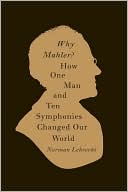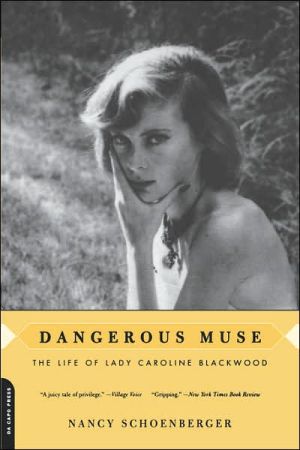Franz Liszt: The Final Years, 1861-1886, Vol. 3
The third volume in Alan Walker's magisterial biography of Franz Liszt.\ "You can't help but keep turning the pages, wondering how it will all turn out: and Walker's accumulated readings of Liszt's music have to be taken seriously indeed."-D. Kern Holoman, New York Review of Books\ "A conscientious scholar passionate about his subject. Mr. Walker makes the man and his age come to life. These three volumes will be the definitive work to which all subsequent Liszt biographies will...
Search in google:
This book is an in depth look at Liszt and anything connected with Liszt during the years from 1848 to 1861. Publishers Weekly The last quarter-century of Liszt's life was filled with dramatic turns, contrasts and emotional storms, like the Hungarian composer's romantic music. The buoyant man of the world retreated into a monastery near Rome (1863-1865), emerging as a Roman Catholic cleric. His elder daughter, Blandine, died from a breast operation, and Liszt tried his best to break up the adulterous relationship of his younger daughter, Cosima, with composer Richard Wagner, whom she married after concealing the out-of-wedlock births of three children by Wagner from her first husband, pianist and Wagner-worshiper Hans von Blow. Shuttling endlessly between Rome, Weimar, Budapest, Paris, Vienna, overworked, overdrinking Liszt suffered a nervous breakdown in 1877 and struggled with suicidal impulses. Polish princess Carolyne von Sayn-Wittgenstein, whose wedding to Liszt was canceled at the last minute in 1861 because of her family's meddling, betrayed him in 1881 by inserting an anti-Semitic chapter into Liszt's revised book on Bohemian music. In this final volume of an extraordinary biography, Walker, a professor of music in Ontario, shows how Liszt's universal despair gave rise to the pathbreaking, proto-modernist music of his later years. A rarity among composers' biographies, this full-bodied portrait combines lively writing and impeccable scholarship. Photos. (Apr.)
\ From the Publisher"Alan Walker's biography of Liszt . . . has been widely hailed as a groundbreaking work of scholarship. . . . Not only did his dogged research correct numerous, mostly damaging preconceptions about Liszt, but his cogent musical analyses made the case for the importance of the music. . . . Love him or hate him as a saint or a sinner, Liszt still has the capacity to stir great passions . . . and Mr. Walker has done a great service in correcting many misconceptions and thus raising the question about the true character of Liszt."-Johanna Keller, The New York Times. January 14, 2001\ "A conscientious scholar passionate about his subject. Mr. Walker makes the man and his age come to life. These three volumes will be the definitive work to which all subsequent Liszt biographies will aspire."-Harold C. Schonberg, Wall Street Journal\ "What distinguishes Walker from Liszt's dozens of earlier biographers is that he is equally strong on the music and the life. A formidable musicologist with a lively polemical style, he discusses the composer's works with greater understanding and clarity than any previous biographer. And whereas many have recycled the same erroneous, often damaging information, Walker has relied on his own prodigious, globe-trotting research, a project spanning twenty-five years. The result is a textured portrait of Liszt and his times without rival."-Elliot Ravetz, Time\ "You can't help but keep turning the pages, wondering how it will all turn out: and Walker's accumulated readings of Liszt's music have to be taken seriously indeed."-D. Kern Holoman, New York Review of Books\ "The prose is so lively that the reader is often swept along by the narrative. . . . This three-part work . . . is now the definitive work on Liszt in English and belongs in all music collections."-Library Journal\ \ \ \ \ \ Publishers Weekly - Publisher's Weekly\ The last quarter-century of Liszt's life was filled with dramatic turns, contrasts and emotional storms, like the Hungarian composer's romantic music. The buoyant man of the world retreated into a monastery near Rome (1863-1865), emerging as a Roman Catholic cleric. His elder daughter, Blandine, died from a breast operation, and Liszt tried his best to break up the adulterous relationship of his younger daughter, Cosima, with composer Richard Wagner, whom she married after concealing the out-of-wedlock births of three children by Wagner from her first husband, pianist and Wagner-worshiper Hans von Blow. Shuttling endlessly between Rome, Weimar, Budapest, Paris, Vienna, overworked, overdrinking Liszt suffered a nervous breakdown in 1877 and struggled with suicidal impulses. Polish princess Carolyne von Sayn-Wittgenstein, whose wedding to Liszt was canceled at the last minute in 1861 because of her family's meddling, betrayed him in 1881 by inserting an anti-Semitic chapter into Liszt's revised book on Bohemian music. In this final volume of an extraordinary biography, Walker, a professor of music in Ontario, shows how Liszt's universal despair gave rise to the pathbreaking, proto-modernist music of his later years. A rarity among composers' biographies, this full-bodied portrait combines lively writing and impeccable scholarship. Photos. (Apr.)\ \ \ Library JournalThe final volume of Walker's monumental study (Franz Liszt, Vol. 1: The Virtuoso Years, 1811-47, LJ 11/1/82; Franz Liszt, Vol. 2: The Weimar Years, 1848-61, LJ 5/15/89) draws upon some recent scholarship to present a more complete picture of Liszt's life and achievements than had been previously possible. Liszt's remarkably peripatetic existence creates manifold challenges for the conscientious scholar, but Walker is more than equal to the task. His narrative is copiously footnoted yet never seems to bog down in minutiae. In fact, quite the opposite: the prose is so lively that the reader is often swept along by the narrative. A particularly fascinating section concerns the infamous Cosima Liszt-Hans von Buelow-Richard Wagner triangle, which is skillfully dissected by Walker to separate legend from accurate history. Liszt emerges as an unmistakably generous and self-effacing man in his later years whose prodigious gifts as a composer and pianist were undimmed until the very end. Walker provides frequent musical examples throughout, and his comments on them are not too technical for the general reader. This three-part work, which represents a 25-year labor of love, is now the definitive work on Liszt in English and belongs in all music collections.-Larry A. Lipkis, Moravian Coll., Bethlehem, Pa.\ \ \ \ \ Kirkus ReviewsThird and final hefty volume on the larger-than-life Romantic composer/pianist (preceded by Franz Liszt: The Virtuoso Years, 18111848, 1983, and Franz Liszt: The Weimar Years, 18481861, 1989).\ Anyone looking for a nonpartisan view of Liszt should check their hat at the door; this is a celebration of a man and his work, as thorough and complete as one could hope. It covers Liszt's declining years, so there are fewer achievements and more tragedy, including his thwarted marriage plans to the eccentric Princess Carolyne von Sayn-Wittgenstein; his decision to become a priest (much to the shock and amusement of those who recalled his younger years); and his steady decline into illness and blindness. Most upsetting was his daughter Cosima's decision to abandon her husband (the noted conductor Hans von Bülow) and run off with the composer Richard Wagner. Liszt had been a mentor to both men in their early years and felt personally responsible for the tragedy. Liszt led a footloose existence, dividing his time between Italy (where he practiced his religious life), Weimar (where he continued to teach music), and his native Hungary. Walker is a die-hard Lisztomaniac, often apologizing for the composer's behavior and never encountering a piece of music he doesn't like. Was Liszt an alcoholic? Perhaps, Walker thinks, but alcohol seemed to impair "neither his piano-playing nor his conversation." Did Liszt serve as a proper role model for his many students? Walker admits he may have introduced a few to the vices of cognac and cigars, and may even have been a little too friendly with the younger females. Was he an anti-Semite, as the scandalous 1881 revision of his work on Bohemian music seemed to imply? Walker blames this on the meddling hands of Princess Carolyne, freeing Liszt of this stain.\ Thorough, engaging, if slightly rose-colored account of the composer's later years.\ \ \








